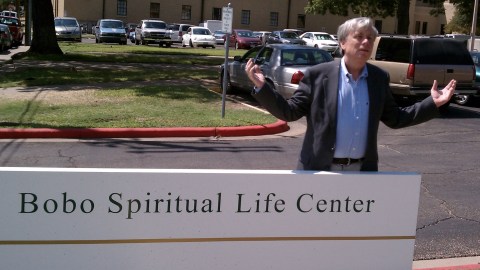Advice for (Educational) Bubble Kids

Glenn Reynolds, one of America’s leading bloggers at Instapundit, has written a very short and accessible book called The Higher Education Bubble. My review amounts to this: It has all the strengths and weaknesses you’d expect from an analysis by a competent and savvy economist (who poses as one of America’s best law professors). From an economic point of view, the book is a bargain compared to other books. But if you think of yourself as paying by the word… In the spirit of the economist, I refuse to provide the Amazon link or privilege any one vendor over all the others.
I’m just going to indulge myself by making some observations that occurred to me as I read through the book. In some cases, I’ll be adding to Reynolds’ analysis. My additions will be along the lines of the sound advice of the economist. Listen, kid, don’t be a sucker! I’ll leave the limits of the economist’s analysis for a later post.
Because I don’t think the bubble is as big as Reynolds does, I don’t think its popping—the market correction—will be as abrupt and devastating as he does. Nonetheless, I certainly agree that the astute consumer is well advised not to go very far into debt in purchasing this product that’s clearly overvalued right now. The best way to bring costs down, I agree with the economist, is to educate consumers about their true self-interest. That’s a bit more complicated than the economist thinks—because we’re not only beings with interests but beings with souls. But it’s always good to begin at the beginning.
The book does exaggerate what students actually pay for college by not providing any sort of analysis of the real discount rates at expensive and especially elite colleges. It creates the impression that a significant number of students are borrowing to pay 60K a year retail price of some schools. But it’s still true that increases in real cost—viewed over several decades—have far exceeded the rate of inflation.
Things might be better than ever for really poor kids (and a whole self-help book has to be written on how to display your poverty for [or how to hide what resources you do have from] the financial-aid guys). Really poor kids need to focus their applications on really rich schools—schools that can afford them. Poor kids usually get their best details from Harvard, if only they can get in. I could now go on to explain why parents shouldn’t knock themselves out saving for college, and even why the allegedly high cost of higher education shouldn’t prevent you from having as many kids as you want.
Really smart kids (that is, those with the relevant impressive stats) can get great deals by applying at private schools well below their “pay grade.” To give a Pennsylvania example, the differences in quality between Ursinus or Villanova and Swarthmore is not really worth all that much money. Each has a fine liberal-arts program, and someone could say that Villanova’s focus on “great books” in general education is much better than comparable stuff going on at Swarthmore. There’s a lot to be said for taking the best deal you can get at a decent school. Sell your stats to those mediocre or self-esteem challenged enough to be awed by them!
I agree with Reynolds that students and their parents often don’t get how much of a burden the easy-credit loans will be later in life. And they’re wrong to think that any college is worth big debt. Not enough students and parents bargain with colleges to bring the price down. And not enough do what’s so easy to do now: Apply to a very large number of colleges and become an astute comparison shopper.
One advantage students going to first-rate high schools have over those going to inferior and backwater schools is that the better the school, the more likely the student will have teachers and administrators who will act as his or her agent and help him or her maximize and take full advantage of his or her market value. Too often I’ve met nice kids from rural high schools who don’t know spit about the disparity between a private college’s “sticker price” and what they’ll actually be asked to pay. They also had reduced their market value by taking the SAT or ACT only once and without any preparation. Colleges, to make their stats as impressive as possible, are perfectly willing to count the student’s highest score on these tests as the one true score. So elite high schools make the kids take them a lot. Practice only rarely makes perfect, but it usually makes lots better.
Unless you’re rich enough to pay cash without worries: Nobody should pay retail at an expensive private college. Almost anyone with severe money worries and without an impressive discount offer is well advised to stay home, get a job, and do the first two years at a local state college, even a community college (where, as Reynolds says, the quality of teaching is sometimes surprisingly good). That way, you might even find out that college is not for you—avoiding the tragedy of being both crushingly indebted and degreeless. If there is a reality show called America’s Biggest Suckers, those tragic guys should be on it. The tough-minded should say it’s their own damn fault (in most cases).
To help out with “retention” issues, a surprising number of private colleges offer great financial aid packages to transfer students with solid but unspectacular records. In some ways, the best educational deals in the country are the eilte public colleges and universities with low in-state tuitions and very selective admission policies—such as Virginia, Michigan, William and Mary, UNC-Chapel Hill, and even our University of Georgia. Often it’s a lot easier to get in as a transfer.
Obviously, the more you borrow, the more you better choose a major that leads to a job with a salary above subsistence. Engineering and nursing come to mind. The more, of course, you should also avoid most majors ending in “studies.” Reynolds reminds us of the pathetic story reported in the NYT about a woman who borrowed over 100K to get a major in religious and women’s studies from NYU. Because the law doesn’t allow her, as it usually does, to get past her huge error by declaring bankruptcy, she’s caught in a financial trap from which she can’t get out.
The lesson, in my view, is not that you’re stuck with choosing a useful major that you don’t really like that prepares you for a career that doesn’t inspire you. After all, you only go to college once (usually), and you should enjoy and be improved by the experience for the reasons associated with getting a genuinely higher education.
The lesson is: Knock yourself out avoiding debt to keep your options in and after college open. Well, some debt—as I said before, 30K or less for four years—won’t kill you. But no more!
There’s a lot more to say…





